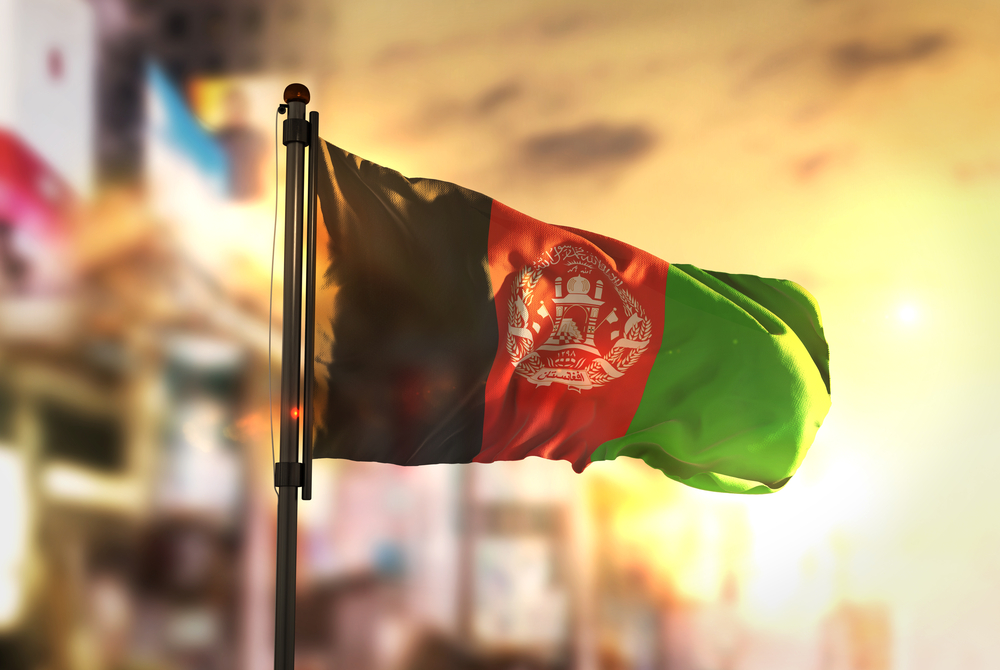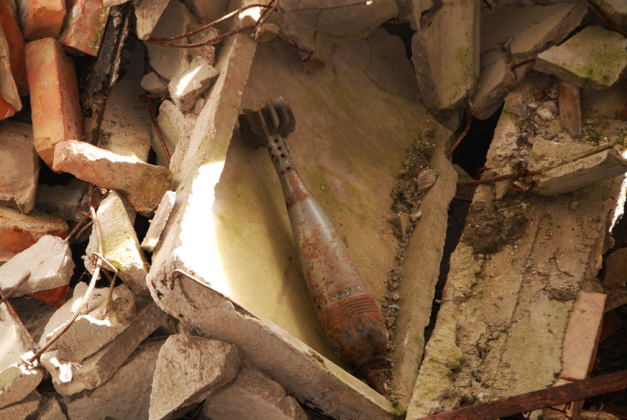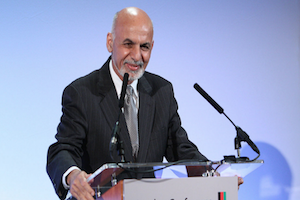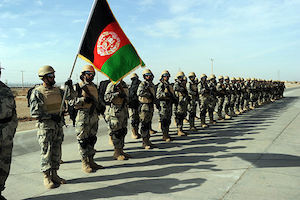ISKP Attack In Kabul Punches Holes In Taliban Regime's Claims
By Sudha Ramachandran
A recent attack by the Islamic State of Khorasan Province (ISKP) on a Chinese restaurant in a supposedly secure district in the Afghan capital, Kabul, is a setback for the Taliban regime. Not only was it an embarrassment to the regime as it laid bare its limited capacity to provide foolproof security to foreign nationals; it is also likely to have drawn the ire of the Chinese, who have promised investment in Afghanistan. Other countries keen on investing in Afghanistan will have taken note.

BACKGROUND:
A suicide attack in a Chinese restaurant in Kabul’s Shahr-e-Naw district on January 19 claimed the lives of seven people, including a Chinese Muslim man, who co-owned the restaurant with his wife and an Afghan partner. The others killed in the attack were Afghans. Over a dozen people, including a Chinese national, were injured in the explosion. Claiming responsibility for the attack, the ISKP warned that it “has placed Chinese nationals on its target list, especially in light of the increasing crimes committed by the Chinese government against the persecuted Uyghur Muslims.” Chinese nationals reportedly frequented the Kabul restaurant that was attacked. The bomber aimed to cause maximum Chinese casualties; according to the ISKP statement, he waited for a large number of Chinese to enter the restaurant before he blew himself up.
The ISKP has been targeting China both in its propaganda and violence for several years. ISKP propaganda slams China’s persecution of Uighur Muslims. Its criticism of China’s policies and actions in Xinjiang is primarily aimed at drawing Uighur Muslims in the region into its fold. ISKP often calls on Muslims to take up arms against “red atheists whose hands are soaked with the blood of innocent Uyghur Muslims.” The ISKP has also targeted Chinese nationals and interests abroad, including the kidnapping and killing of two Chinese teachers in Quetta in Pakistan’s Balochistan province in 2017. ISKP attacks targeting Chinese nationals in Afghanistan include the January 2022 suicide bombing outside the Foreign Ministry building in Kabul, minutes ahead of the arrival of a Chinese delegation; the December 2022 attack on the Kabul Longan Hotel, which is frequented by Chinese businessmen, that left at least five Chinese nationals injured; and the January 2025 killing of a Chinese mining worker in Takhar. The targeted killing of Chinese nationals working in mines in Tajikistan has surged in recent months, although it is not clear whether the ISKP carried out these attacks.
Since the Taliban captured power in Kabul in August 2021, China’s role in Afghanistan has grown significantly. Chinese investment in the Afghan economy, particularly in the mineral sector, has grown. Such investment provides the internationally isolated Taliban regime in Kabul with much-needed funds and serves to help it consolidate control over power in Afghanistan. The ISKP’s targeting of Chinese nationals in Afghanistan is likely aimed at prompting Beijing to rethink its collaboration with the Taliban, the ISKP’s sworn enemy, and withdraw investments from the Afghan economy.
IMPLICATIONS:
Reports, including from the United Nations, from last year have stated that ISKP attacks have declined both in frequency and scale. ISKP propaganda publications have also fallen in frequency. They rarely provide new content, and often regurgitate topics and articles previously published. It is possible that the ISKP’s recent attack in Kabul on January 19 and the targeting of a Shia Mosque in Islamabad on February 6 were aimed at signaling that it remains a potent jihadist group. However, it may be too early to conclude that the ISKP is on the path of revival and resurgence, since the two major attacks this year were on soft targets. Yet, the fact that the ISKP was able to target a Chinese restaurant in the Shahr-e-Naw neighborhood cannot be dismissed lightly as this is a tightly guarded area of the Afghan capital.
UN reports have been pointing out that terrorist groups like al-Qaida, ISKP and Tehreek-e-Taliban continue to operate from Afghanistan, a claim that the Taliban regime has often rejected. The January 19 attack reveals that at a minimum, the ISKP is present in Afghanistan, and remains a clear and present danger even in Kabul. This punches holes in the Taliban’s oft-repeated claims to prospective foreign partners that Afghanistan is safe for investment, and that their nationals are secure here, laying bare the fragility of these security guarantees. This is a major embarrassment and setback to the Taliban, which can be expected to further intensify operations against the ISKP in the coming days. The Taliban has been collaborating closely with China to crack down on Uighur Muslims living in Afghanistan and the regime can be expected to double down on them, especially since they form an important component of the ISKP’s fighting cadre.
The January 19 attack in Kabul can be expected to prompt a strong response from the Chinese government. Although there were few Chinese nationals among the casualties in the restaurant attack, the fact that the bomber was able to enter a restaurant and areas reportedly secured by Chinese guards will rattle Beijing. It will raise the issue of security for its nationals and interests in Afghanistan with the Taliban regime and has already issued advisories to its nationals travelling to and living in Afghanistan. Yet while the Chinese government can be expected to step up pressure on the regime in Kabul, China is unlikely to throw in the towel with regard to investment in Afghanistan. Other countries that are looking to enhance their role in Afghanistan, for example India, will have taken note of the still unstable security environment in the country. They will be cautious in deciding on investments and taking on infrastructure-building activities in Afghanistan.
For the ISKP, the January 19 attack on the Kabul restaurant brings mixed returns. Although the attack may not have resulted in many Chinese casualties, it has given the ISKP the propaganda boost it was looking for. This will enhance the group’s image, especially in jihadist circles. It also served to roil relations between Beijing and the Taliban regime, while the ISKP can expect a boost to its recruitment efforts. However, the group can also expect to increasingly be in Beijing’s crosshairs.
CONCLUSIONS:
The ISKP attack on a Chinese Muslim restaurant in Kabul has once again turned the spotlight on the jihadist group. While it may not signal a revival of the ISKP’s flagging image and declining capacity, it will serve to boost morale and recruitment of fighters. Importantly, it is a major setback for the Taliban regime’s credibility and for its relations with China, its most important international partner. While the attack may not prompt Beijing and Chinese businesses to review their decision to invest in Afghanistan or revise their investment strategies in the country, more such attacks, especially on hard targets and those that damage Chinese infrastructure could prompt China to go slow or scale down investment in Afghanistan. However, such a rethinking is not imminent.
AUTHOR’S BIO:
Dr Sudha Ramachandran is an independent South Asian political and security analyst. She is also South Asia editor at The Diplomat. Her articles have appeared in publications like The Diplomat, Asia Times, China Brief and Terrorism Monitor.
ISKP Attacks in Uzbekistan and Tajikistan
By Sudha Ramachandran
August 31, 2022
Since April this year, the Islamic State Khorasan Province (ISKP), the Afghan affiliate of the terrorist organization known as the Islamic State of Iraq and Syria (ISIS), has carried out rocket attacks in Uzbekistan and Tajikistan from its bases in northern Afghanistan. The attacks are significant. This is the first time that the jihadist group is targeting countries in Central Asia. They signal the ISKP’s expanding geographic presence inside Afghanistan as well as its growing ambitions in Afghanistan and Central Asia. Western countries that are concerned about terrorism emanating from Afghanistan should take note of the implications of the recent attacks.

Taliban Resumption of Fighting Should Not Bury Afghanistan's Peace Process
By Sudha Ramachandran
June 26, 2018, the CACI Analyst
A day after Taliban fighters stunned the world with photographs of themselves embracing and celebrating Eid with personnel of the Afghan security forces, the Taliban leadership announced its decision not to extend the ceasefire. This dashed the hopes of millions of Afghans who were looking forward to a respite from the war. While the Taliban’s refusal to extend the ceasefire is disappointing, it is not the end of the road for the peace process. In recent months, Afghanistan has witnessed powerful demonstrations calling on the government and the Taliban to end the fighting. President Ashraf Ghani must draw on these peace constituencies to keep the peace process alive.

Are We Seeing the Beginning of ISIS-Taliban Collaboration in Afghanistan?
By Sudha Ramachandran
November 13, 2017, the CACI Analyst
The attack at Mirza Olang village in Sayad district of Afghanistan’s Sar-e Pul Province on August 5 is reported to have been a joint operation by the Taliban and the Islamic State of Khorasan Province (ISKP), the local branch of the terrorist organization known as the Islamic State of Iraq and Syria (ISIS) (Khorasan is an old name for the region that includes parts of present-day Afghanistan, Pakistan, Iran and Central Asia). If the Taliban and ISKP did indeed join forces to carry out the attack, this is bad news for the Afghan government and people. However, given the huge differences and tense relations between the two armed groups, cooperation, if any, is likely to be local, tactical and short-lived.



